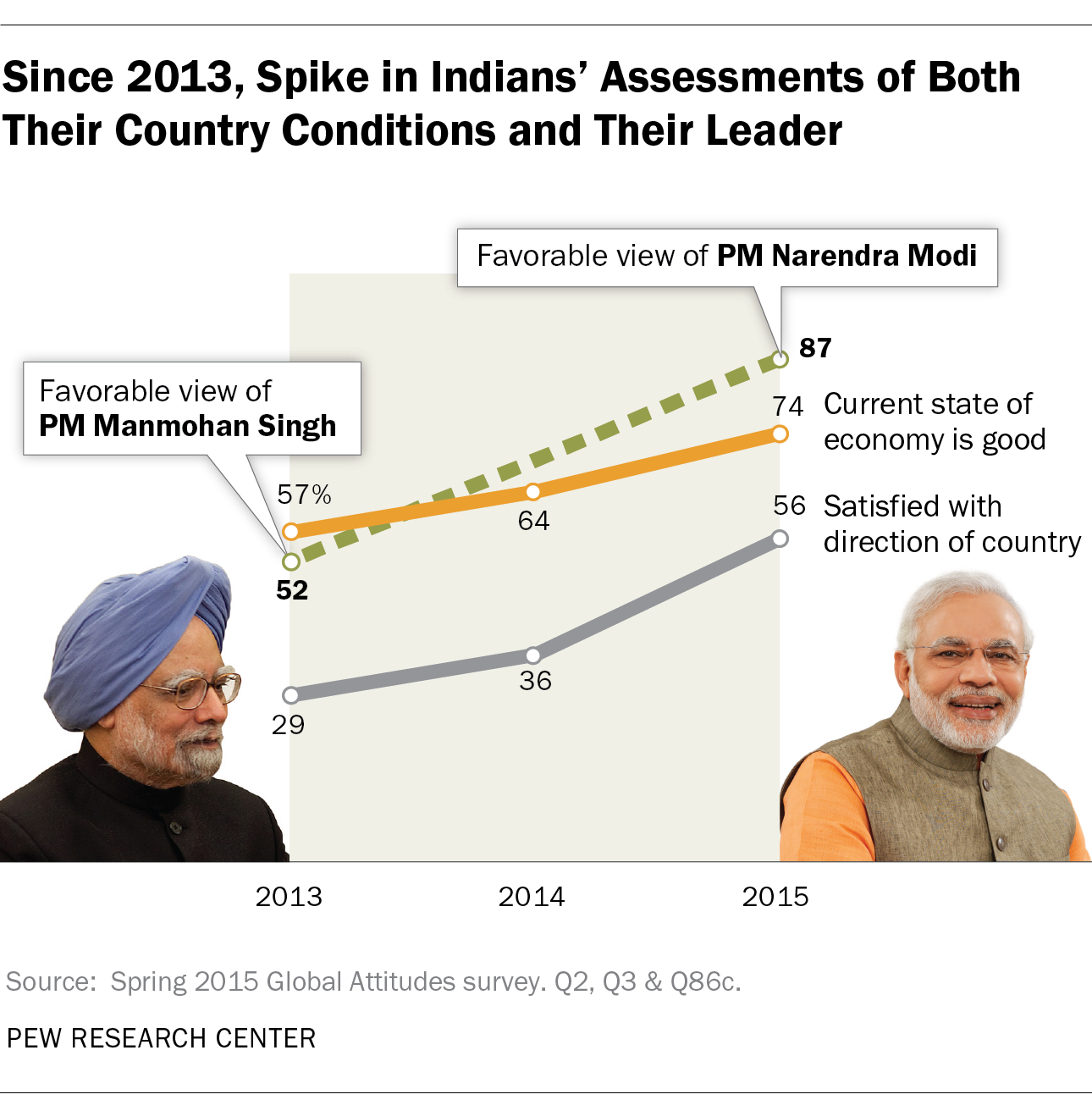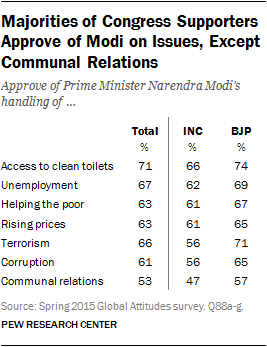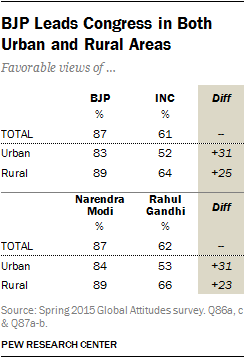What a difference a couple of years can make. With a rising economic tide, a new captain at the helm and a buoyant public mood, the Indian ship of state has the wind at its back.

In late 2013, Indians were mired in dissatisfaction with the way things were going in their country. They were only moderately satisfied with economic conditions. And barely half had a favorable view of then-Prime Minister Manmohan Singh, a member of the long-ruling Indian National Congress party (INC).
Modi’s appeal is a driving force behind this upsurge in Indians’ positive mood. Those who have a lot of confidence in Modi voice greater satisfaction with the direction of the country today than those with only some confidence in the prime minister. Respondents who have a lot of confidence in Modi also say the nation’s economic situation is very good.
And those who have a lot of confidence in Modi are more likely to expect the economic situation in India to improve a lot over the next 12 months.
Moreover, Modi’s aura has reinvigorated Indians’ faith in their government. About two-thirds of respondents who have a lot of confidence in the prime minister say the influence of the national government is now very good.


Nevertheless, Indians believe their country still faces myriad challenges. More than eight-in-ten say crime, jobs, inflation and corruption are very big problems. Concern about air pollution is up 22 points in just the past year, complaints about poor-quality schools are up 20 points and worry about health care is up 15 points.
And Indians see the world as a challenging place. Nearly three-quarters say they are very concerned about global climate change. A similar proportion say neighboring Pakistan poses a very serious threat to India.
These are among the main findings of a new Pew Research Center survey conducted among 2,452 respondents in India from April 6 to May 19, 2015.




